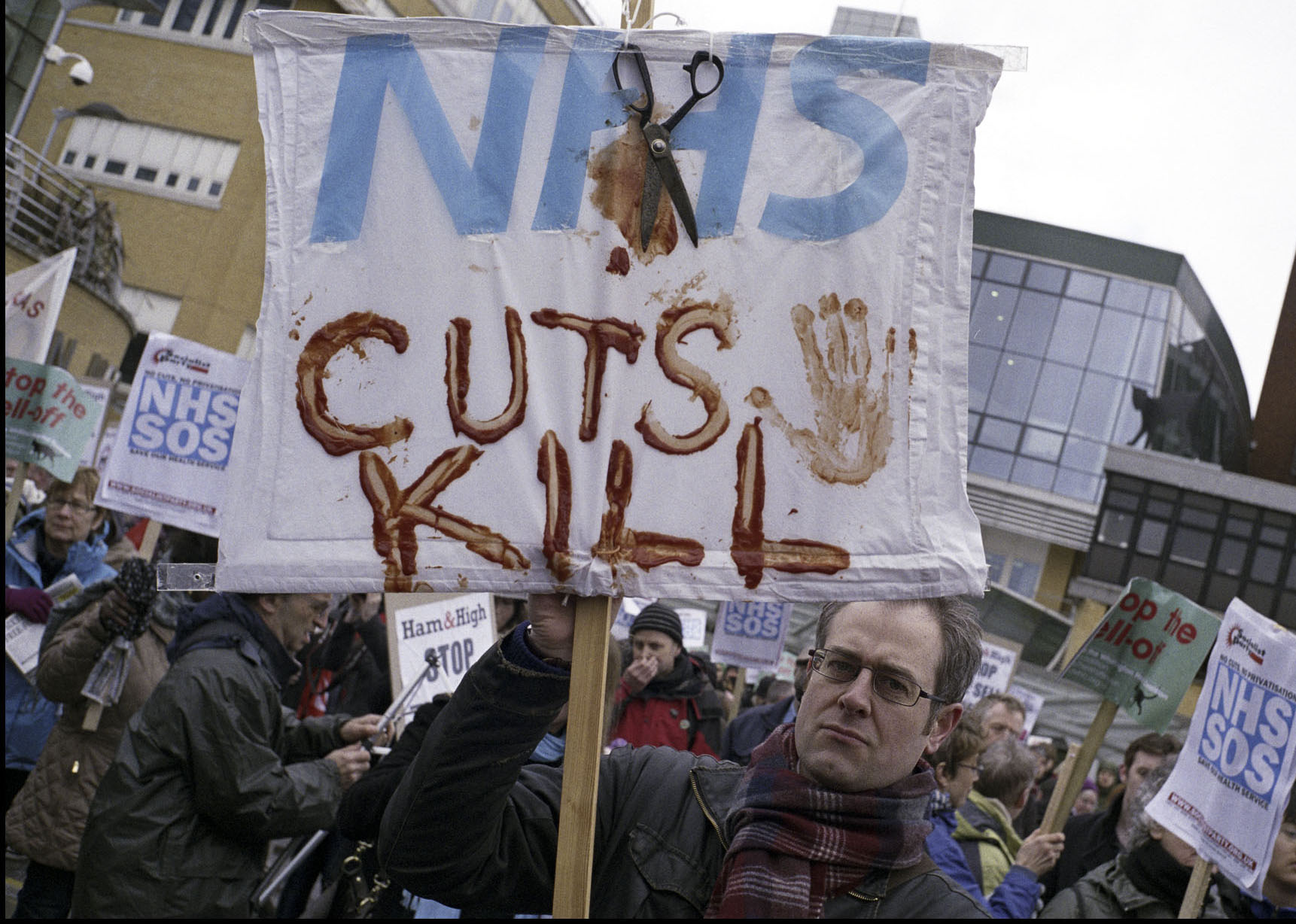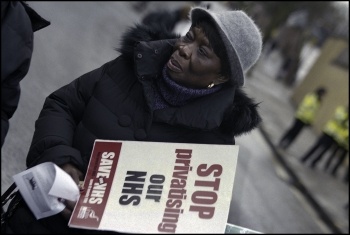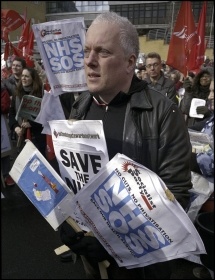Prescription: Fight profiteering from health
A GP
In April the NHS will be moved another step closer to being fully privatised. 211 GP-led clinical commissioning groups (CCGs) will take over responsibility for the majority of the England NHS budget, replacing primary care trusts.
Private companies will get to bid for CCG contracts, while a massive cut in NHS funding will lead to further rationing of free healthcare. CCGs are likely to pick and choose which patients they want.
The government claimed its health ‘reforms’ will mean services will be decided by those ‘closest to patients’ who understand local needs best.
Yet a recent British Medical Association (BMA) survey found that just over a third of GPs involved in CCGs are also members of profit-making private health organisations.
These GPs could be commissioning services from the private health companies that they also benefit financially from.
GPs are meant to declare a conflict of interest and remove themselves from voting in this situation. But being on a CCG will give them inside information regarding what service areas are being looked at.
Inside trading
Potentially it puts their private organisations at an advantage, being able to position themselves better when bidding for contracts.
In one CCG, the majority of the executive board had an interest in an out-of-hours provider, meaning they would all have to sit out of voting over issues related to this service. How can decisions about healthcare be made on that basis?
The majority of GPs in England do not have private health interests. The majority of GPs, like the majority of the country, also opposed the government’s Health and Social Care Act which has introduced these changes.
Self-selecting
March to save Whittington hospital, London, 16.3.13, photo by Paul Mattsson (Click to enlarge: opens in new window)
Because most GPs do not want to be embroiled in commissioning, CCGs have been made up of a self-selecting group.
Worryingly, they obviously see no problem in the idea of the private sector profiting from healthcare and undermining the NHS as we know it.
How can the public have confidence that CCGs are making decisions in their interests rather than those of the private sector and potentially GPs’ own financial gain?
Both the BMA and the Royal College of GPs have raised concerns and stated that GPs should either reconsider their position on the CCG or within the private organisation, but shouldn’t continue to do both.
The Socialist Party calls for an end to privatisation in healthcare and for a publicly-funded, democratically run NHS. This is the only way healthcare can be accountable and genuinely meet people’s needs.
- Stop all cuts, closures and privatisation
- All hospitals to be fully funded by the NHS
- Adequate staffing levels to provide good quality care for all patients
- All NHS PFI deals and debt to be scrapped, with compensation paid only on the basis of proven need
- Kick big business vultures out of the NHS
- Axe the Health and Social Care Act
- For a mass national trade union-led weekend demonstration to save the NHS











